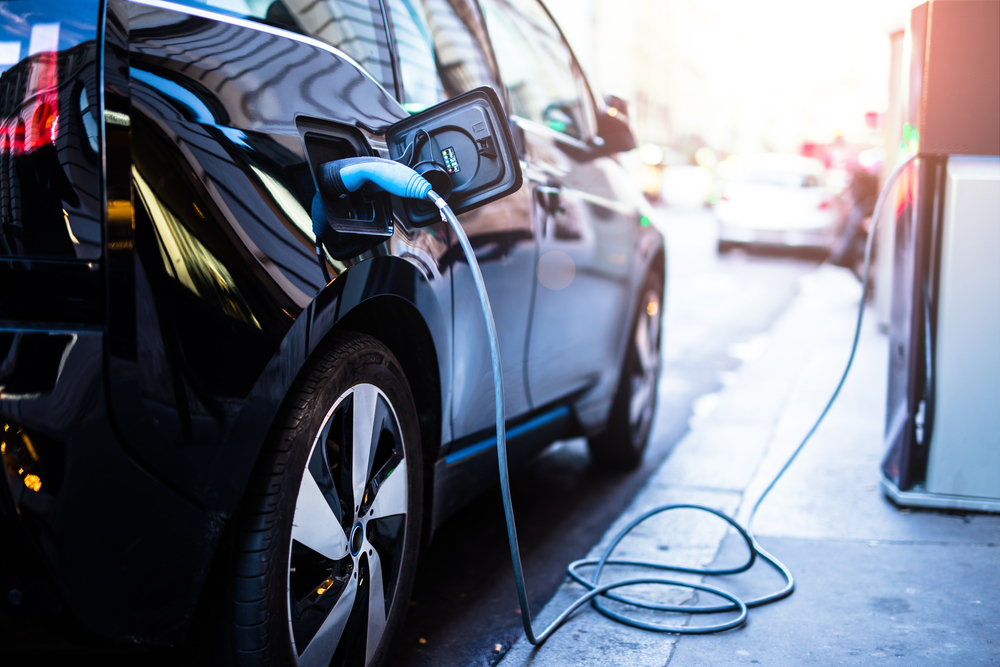Household Bills
Electric car rapid charge costs up by a fifth

The average price of charging an electric car on a pay-as-you-go basis has increased by 21% in the last eight months.
Drivers are paying around £4 more to complete an 80% rapid charge of a typical family-sized electric car with a 64kWh battery at publicly accessible services, the RAC revealed.
This means the cost has risen from £18.81 to £22.81 now (cars revert to slower charging speeds beyond 80% to preserve battery health).
It said the costs have increased 21% since September, so drivers are charged 44.55p per kilowatt hour (kWh), up from 36.74p.
By contrast, the cost of filling a 55-litre family car from empty to 80% has increased by £14.54 since last September, from £59.67 to £74.21.
The RACs analysis showed that it now costs an average 10p per mile to charge at a rapid point, up from 8p per mile last September. This is nearly half the cost per mile compared to filling a petrol-powered family car.
However, the average price of charging at the quickest ultra-rapid charges (in as little as 20 minutes) has increased at a steeper rate from 34.21p per kWh in September to 50.97p in May.
This means the cost to charge a vehicle to 80% has risen from £17.51 to £26.10. But it’s still £48 cheaper than filling a petrol car to 80%. But the RAC said electric car drivers don’t get quite as many miles from an 80% charge as drivers of petrol cars do from an equivalent fill-up.
The RAC said the rising cost of charging is due to the rise in wholesale cost of electricity, driven by gas price hikes.
And for the up to one in three drivers who can’t charge their vehicles at home, instead relying on public charge points, they’re being penalised by having to pay a higher rate of VAT on electricity, the RAC said.
As part of the national FairCharge campaign, the RAC is calling for the 20% VAT rate currently charged on electricity at public charges to be cut to match the 5% levied on domestic electricity.
This would make it an “easier decision for those who cannot charge at home to switch to an electric car”, the RAC said. It added that it would cut the cost of charging up at a rapid charger by 5.57p per kWh and at an ultra-rapid charger by 6.37p. This would reduce the cost of an 80% charge by £2.85 and £3.26 respectively, on average.
‘Most affordable way to charge is at home’
RAC electric vehicle spokesperson, Simon Williams, said: “Unsurprisingly, our analysis shows that the quickest places to charge are also the most expensive with ultra-rapid chargers costing on average 14% more to use than rapid chargers. For drivers in a hurry though, or travelling a long distance, paying this premium might well be worth it with the very fastest chargers capable of almost completely replenishing an electric car’s battery in a matter of minutes.
“Having said that, the most affordable way of charging an electric car isn’t at a public charger – it’s from home, where overnight electricity rates can be much lower than their public charger counterparts. But for people who have no option of charging up at home, there is no opportunity to benefit from these sorts of savings.
“The other reason home charging can be so much cheaper is because of the bizarre way that electricity is taxed. Right now, VAT on electricity from a public charger is levied at a rate four-times that which applies to domestic electricity which makes it far more expensive to charge on-the-go than it should be. We are right behind the FairCharge campaign in thinking this is totally unfair and flies in the face of the government’s ambition for many more drivers to opt for an electric vehicle.”
Williams added: “We understand conversations have been had within government over this ‘no driveway premium’, but it’s time there was an acceptance that a VAT rate that’s more favourable to drivers who have their own off-street parking risks putting other drivers off making the switch. Given the cost-of-living crisis, it’s surely only fair that everyone pays the same level of VAT no matter where they buy their electricity from.”
